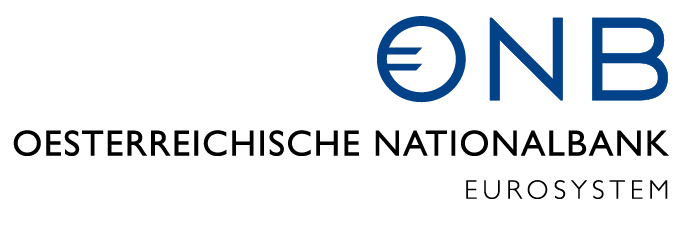

Oesterreichische Nationalbank
Otto-Wagner-Platz 3, 1090 Vienna
& online via Webex

Conference motivation
In recent years, monetary policymakers worldwide have faced a series of profound shocks that have significantly reshaped economic structures and supply conditions. These challenges are set to persist, driven by a combination of both negative and positive factors: geopolitical risks, rising trade barriers, rapid technological advances – including breakthroughs in artificial intelligence -, climate change, the transition to sustainable energy systems, and shifting demographic and societal trends. These changes have far-reaching implications for productivity growth and labor markets. The interplay between these factors affects wages, relative prices and inflation, and overall economic stability. The role of monetary policy in navigating these complexities raises questions about how central banks can effectively respond to evolving conditions while safeguarding price stability and supporting sustainable economic growth and employment. This conference brings together policymakers, academics, and financial industry experts. The first day will feature policy-oriented discussions to encourage analytical exchange between policymakers and academic researchers. The second day will offer a platform for presenting and discussing research in an academic format.
Scientific coordination: Ernest Gnan, SUERF, Birgit Niessner, OeNB, and María Teresa Valderrama, OeNB
Monetary policy and structural tectonic shifts
Robert Holzmann, Governor · Oesterreichische Nationalbank presentationMonetary Policy in Europe: Between Trumpian uncertainty and industrial restructuring
Daniel Gros, Director · Institute for European Policymaking, Bocconi University presentationThis session will examine the evolving nature of inflation in the face of recent global challenges. Factors such as shifts in supply chains, geopolitical risks, technological advancements, and policy responses are reshaping inflationary pressures in unprecedented ways. Experts will discuss the challenges central banks encounter when structural shifts—such as climate change, the energy transition, and technological advancements—lead to diverging inflation trends across goods and various types of services. The session will also address how central banks should account for and respond to structural changes in relative prices and sectoral supply shocks.
This session will delve into the intricate relationship between monetary policy and productivity growth, particularly in the context of recent global disruptions. Topics will include how monetary policy can support productivity growth and foster investment in productivity-enhancing technologies. The session will also examine how productivity growth—driven in part by AI—affects inflation and monetary policy, as well as the challenges and trade-offs that monetary policymakers may encounter. Additionally, the discussion will explore the role of monetary and fiscal policy coordination in this context and how productivity shocks and AI might influence these interactions.
Monetary Policy and Productivity: Implications for Monetary and Fiscal Policy
Michaela Elfsbacka Schmöller, Senior Research Economist · ECB | Bank of Finland presentationMonetary Policy and Productivity: Challenges and trade-offs for central banks
Galo Nuño, Associate Director General Financial Stability, Regulation and Resolution · Banco de España presentationMonetary Policy and Productivity
Filiz Unsal, Head of Structural Policies and Research Division · OECD presentationMonetary Policy and Innovation
Kaspar Zimmermann, Assistant Professor for Finance · Frankfurt School of Finance and Management presentationMonetary policy: Taking a walk on the supply side
Huw Pill, Executive Director for Monetary Analysis and Research · Bank of England presentationThis session will examine the evolving dynamics of global labor markets shaped by technological advancements, demographic shifts, and changing economic conditions. It will re-evaluate the modeling, interpretation, and relevance of the Phillips Curve. The discussion will also focus on the interaction between structural changes in the labor market—such as the rise of part-time work, skill polarization, digitalization, and automation (including AI)—and the Phillips Curve. Furthermore, the session will explore the effects of de-industrialization, de-globalization, and shifts in wage formation following the post-COVID era and the recent inflation surge, along with their implications for monetary policy.
Structural labour market and wage formation challenges in the euro area
Óscar Arce, Director General of Economics · European Central BankImpact of technology, trade, and structural reform on employment
Jakob de Haan, Professor of Political Economy · University of Groningen | SUERF Council presentationMonetary policy and structural changes in the labor market
Martin Kocher, Professor of Economics · University of ViennaArtificial Intelligence in the Knowledge Economy
Eduard Talamàs, Assistant Professor of Economics · IESE Business School presentationMonetary Policy Challenges in an Uncertain World
Klaus Schmidt-Hebbel, Professor of Economics · Universidad del DesarrolloThe Inflationary Effects of Global Supply Chain Shocks: Evidence from Swedish Microdata
Peter Tillmann, University of Giessen presentationCo-Author(s): David Finck; Mathias Klein
Energy Shocks, Consumption Disparities and the Inflation-Inequality Dilemma
Rosi Chankova, University of Oxford presentationCo-Author(s): Momo Komatsu
Beware of large shocks! A non-parametric structural inflation model
Elena Bobeica, European Central BankCo-Author(s): Sarah Holton, Catalina Martinez Hernandez, Florian Huber
The Energy Origins of the Global Inflation Surge
Thomas Kroen, International Monetary Fund presentationCo-Author(s): Jorge Alvarez
Monetary Policy Tightening and SME Bank-Credit Demand Substitution
Supriya Kapoor, Trinity College Dublin presentationCo-author(s): Michael Mahony, Anuj Pratap Singh
Monetary Policy under Labor Market Power
Rui Mano, International Monetary Fund presentationCo-author(s): Anastasia Burya; Yannick Timmer; Anke Weber
Monetary policy, the bank-lending channel and labor market adjustment of firms
Ahmet Ali Taskin, Institute for Employment Research presentationCo-Author(s): Almut Balleer; Britta Gehrke; Marvin Noeller
Leverage across the production network and the transmission of monetary policy
Stefan Gebauer, European Central Bank presentationCo-author(s): Alessandro De Sanctis, Fédéric Holm-Hadulla, Matteo Sirani